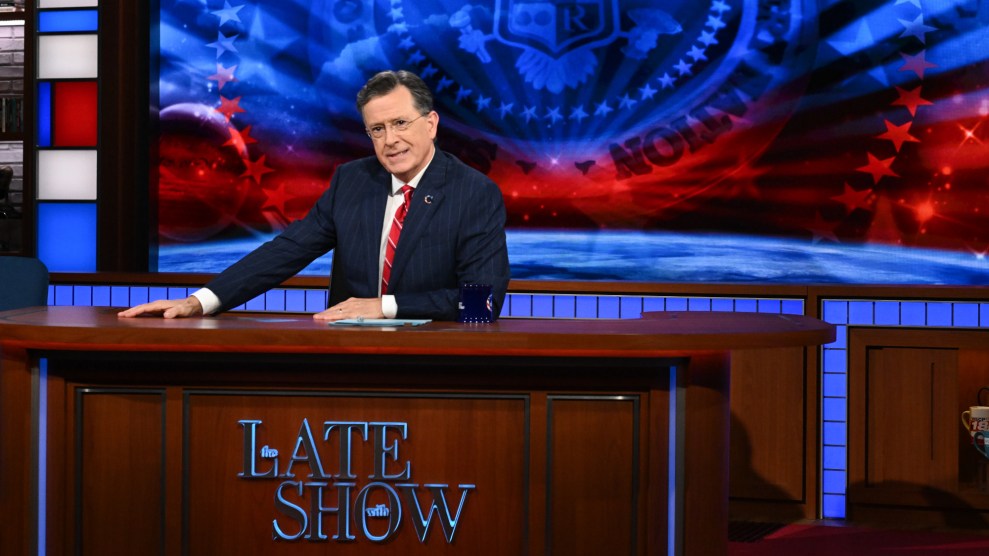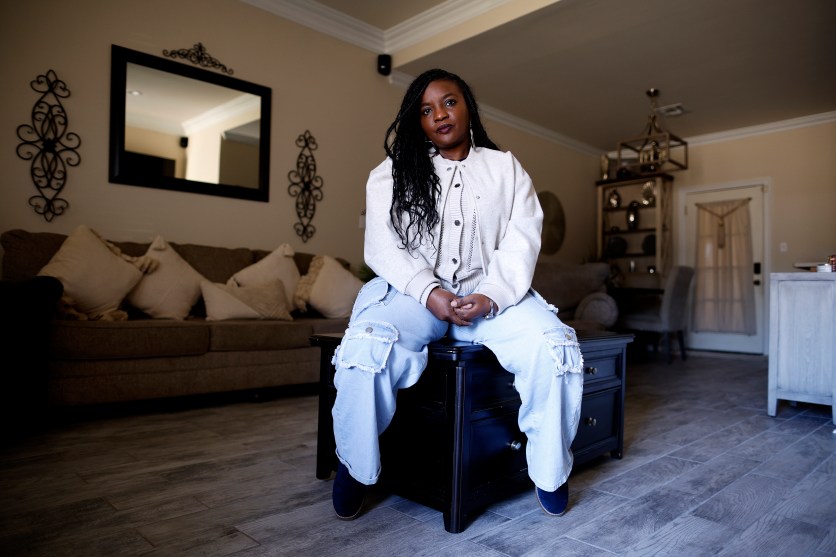Look across Havemeyer Street in the Williamsburg section of Brooklyn from the perch of the elevated train and you will see nothing remarkable: a pharmacy (“We accept wic”), a discount shoe store, a tangle of cars, two delis, two banks. One of the banks, a branch of Dime Savings, has massive pillars out front, an architectural style meant to convey security, strength, and longevity. But they can also be viewed as a barrier, not unlike the bars that many residents and shopkeepers have on their windows here to keep out the unwanted. Dime Savings Bank was recently cited by New York community groups for denying people of color equal access to its lending resources.
“There are huge gaps in poor communities’ access to credit and other banking services,” Terri Ludwig says, as she surveys the street from her third-floor office above the discount shoe store on Havemeyer Street. This is the headquarters of Accion New York, a nontraditional lending organization that makes small loans — a practice called microlending — to people banks won’t go near: women without credit histories, men without checkbooks, immigrants whose dreams are limited only by their means.
But even if the banks considered these folks creditworthy, the amount of money they need, typically a few thousand dollars, is too small to be worth a bank officer’s time. Which means, says Ludwig, Accion New York’s director, that “poor communities are packed with people who want to work their way out of their circumstances but can’t.”
On her walls, maps with titles like “geographic distribution of borrowers,” “geographic distribution of Spanish speakers,” and “geographic distribution of bank branches” tell the story that banks are scarce in neighborhoods dominated by new immigrants and the working poor. Not coincidentally, these are the same neighborhoods where most of Accion’s clients live. On the walls, too, are oversized photographs of people at work. One shows a man and a woman making plaster figurines; in another, women fry tortillas; in a third, someone is cutting hair. These are people banks did not believe could work their way out of their circumstances, but did.
“What has made microlending so powerful is that it dispels a lot of assumptions about poor people,” Ludwig says, “like they can never pay back a loan. This simply is not true. We have had a 95 percent repayment rate on the 2,530 loans we’ve made since 1991. Poor women, especially, turn out to be the world’s best credit risk. Microlending has given them a vehicle to substantially improve their economic condition.” Ludwig cites a couple of figures to back up her enthusiasm: The household income of clients who received two successive loans from Accion New York rose 45 percent, and their business profitability went up 66 percent.
With numbers like these, it’s no wonder President Clinton, a proponent of the “hand up, not handout” school of social engineering, made it a point to meet some of Accion’s clients during a trip to New York earlier this year. His message: This stuff works, so let’s go for it. The irony is that microlending is a Third World “technology” that has been used effectively for decades in the poorest communities of the poorest countries — in rural Bangladesh, for example, and in Guatemala and Mexico. Its application to our rich country, where Accion is the largest of about 500 microlending organizations, says a lot about the short arms of our booming economy.
Two train stops past Havemeyer on the J line, farther into the heart of Williamsburg, is Antojitos Mexicanos, a spacious, unadorned restaurant where Los Tigres del Norte dominate the jukebox and tacos cost a dollar each. In the kitchen, Uvalda Abarado makes dough for a batch of her much-sought-after huaraches, corn tortillas on which she layers chicken or beef and lettuce and cheese.
At 41, Abarado has been in this country for 20 years, up from Mexico, and has the typical poor immigrant’s pedigree of years spent in a series of unforgiving, low-paying jobs. It was at one of these — when she was sewing in a Brooklyn sweatshop — that she looked out the window and saw a man peddling food from a cart on the street, another menial job, but one that promised a certain amount of autonomy.
Abarado quit her job and began to cook burritos and enchiladas at home and sell them on the nearby streets. But before long the police shut her down because she didn’t have the necessary permits. A single mother — her husband had recently left her — she was as determined as she was desperate. She began hearing radio ads that promised small loans to people like her. It was 1991, and Accion International, which had pioneered microlending in Latin America, was opening up in New York. Abarado was one of its first clients. Six loans — $23,000 at 16 percent interest — later, she now runs two restaurants that employ 10 people, and she expects sales of nearly half a million dollars in the coming year.
Uvalda Abarado’s loan officer at Accion, Maria Hernandez, is also from Mexico, where she spent four years as an international banker. Then came the collapse of the Mexican economy, the devaluation of the peso, and the Chiapas uprising, all of which contributed to Hernandez’s realization that her skills as a banker could be put to use helping people, especially women in need, gain a modicum of economic self-sufficiency. In Oaxaca she helped a collective of weavers get small loans to expand its business, and in Veracruz she did the same for a group of women who ran an organic fertilizer business.
“I’m still doing finance,” she says as our taxi makes its way across Brooklyn from Williamsburg to Crown Heights, where Hernandez is headed to interview a prospective client. In less than a mile I see what she means. “Do you rent this car?” she asks the cab driver, a Latina woman. When the woman says that she does, Maria Hernandez wants to know the rental fee. The driver takes a good, long look at Hernandez — a short woman with a dogged mien — reluctantly names the fee, and admits that she works as much as 19 hours a day to make ends meet.
Hernandez looks outraged. She pulls out her calculator, does the math, and harrumphs. With a $5,000 loan from Accion to buy a car at auction, she says, the woman will spend less money on repayments than she does renting, and when she has finished making payments she’ll own the car, free and clear. Hernandez hands the driver her card and asks the woman’s name. The driver eyes Hernandez with a mixture of suspicion and intrigue, hesitates a moment, then gives her name and even offers her phone number. The women agree to talk the next day.
“The human component is what I love,” Hernandez says when we are out of the car. She is nearly gleeful, like someone on the cusp of a big deal. To the people she assists, it is a big deal.
Hernandez’s prospective client, Versie Brown, is an African American woman who makes her living selling cosmetics out of her house. Selling Avon and Mary Kay are popular ways for low-income and middle-class women to make money, Terri Ludwig had told me earlier. A surprising number of Accion loans are for women looking to buy makeup. Versie Brown hopes to be one of these. She estimates that a $2,500 loan from Accion will enable her to meet the demand she expects to face around Mother’s Day.
Hernandez assesses Brown’s assets and her debts, asks questions about her earnings, then punches the numbers into her calculator. “An eight-month loan at 16 percent will be $331 a month. Is that number good with you? I’ll be presenting this application in eight days and you’ll get a check the following Wednesday. What can you put up for collateral? We could accept your television or your computer or your sofa, that sort of thing.”
Brown thinks a moment, then offers her 11-year-old car. The women shake hands. Hernandez explains that Accion will also provide technical assistance — help with accounting and legal services and whatever else Brown needs. “This will change the complexion of my business,” Brown says. She beams. Maria Hernandez beams back. They shake hands again.
“I like her character,” Hernandez says when we are out on the street again. “At Accion we give character loans.” The term, which I’d heard earlier from Terri Ludwig, reminded me of stories about the way banks used to do business, with a look in the eye and a firm handshake, rather than strictly going by the books.
Since Accion clients are not likely to have any books, Ludwig had said, loan officers can only go on their gut belief that a person who says she will repay a loan will honor that obligation. So far they have rarely been proved wrong.
“Banks love our clients,” Terri Ludwig had said, pointing out that one of her organization’s goals was to “graduate” clients to “real” banks — that is, to “make them bankable.” As I stood on the elevated train platform for the ride home, looking at the delis and the pharmacy and the banks on Havemeyer Street, I wondered why, if banks love these honest, hardworking souls so much, they still have bars out in front of them?
















